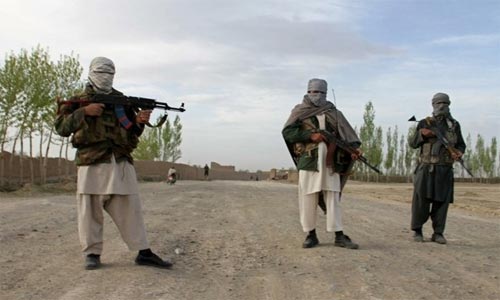People of Afghanistan doubt the intention of Taliban insurgents in the ongoing peace negotiations. They fear balance of flow of things has been tilted towards Pakistan agenda in the ongoing peace negotiation because of the nature of demands of Taliban insurgents, and the countries involved who push rigorously for these skewed agenda. Saudi Arabia, United Arab Emirates and Pakistan were the three countries who recognized Taliban regime during their rule in Afghanistan (1995 – 2001), and these countries are fully engaged in the ongoing peace negotiations. Afghan Government has so far been left out of the peace negotiation process, and this phenomenon – if continued – doesn’t bode well for an acceptable settlement among stakeholders. According to Upendra Baghel, an expert in security and building state institutions, ‘international community members have legitimate individual and collective interests, which are to be aligned. Russia is concerned on expansion of ISIS towards Central Asia, India is on the use of Pakistan sponsored Afghan fighters in Kashmir, US is on terrorism impacting that country, Pakistan is on Durand border dispute and water share, Iran on Shia support and water share and Northern border countries on anti-establishment groups in their countries and Tajik / Uzbek issues’. It is, therefore, critically important for Afghan Government to address causes for the ongoing war and underlying fault lines and engage in productive talks with these countries to settle their worries. Till now, Afghanistan has been depending on USA and coalition partners for addressing Afghan issues, which distanced it from making efforts to address causes of multi-cornered conflict. Taliban insurgents are fighting force, hence a tool in the hands of those behind these big agendas. It is always good to have active diplomatic channels among warring factions, but unless concerns of countries involved are not addressed, such peace talks / negotiations will not result in any major settlement or peace deal.
Recent announcement by president Trump administration to reduce US forces in Afghanistan by 7000 troops has been seen as a tactic and tool to exert pressure on both sides i.e. Afghan Government and Afghan Taliban insurgents to cede ground for peace to prevail. Taliban insurgents have been demanding that US should withdraw from Afghanistan and Government side demand continued presence of US forces in the country. This move has been seen as a stick to Afghan Government and carrot to Taliban insurgents. But the decision also prompted resignation of Defense Secretary, Jim Mattis, the highest official in Trump administration, which makes things more muddy and opaque. Another conspiracy theory, which is floating among Afghans, is that this move of Trump administration is ‘an attempt to bring Black Water to Afghanistan to privatize the war’. The 7000 troops leaving Afghanistan would be replaced by Black Water ‘fighters’. It was touted few months ago that Black Water, a US company doing defense and security works, will be given contract to fight insurgents in Afghanistan. This plan was apparently shelved because most Afghans and President Ghani opposed it. On a realistic account, Afghan security and defense forces are improving their ability to fight Taliban insurgents and other international terrorist groups operating in Afghanistan. Thus, a smaller number of US forces who can provide training and advice to Afghan military and police forces will be enough. Unless complete withdrawal of US and NATO forces is looming large, reduction in number will not have any negative impact insofar as monetary and military equipment and weapons are provided.
Another worrying point in the ongoing peace negotiation is the intention of President Mohammad Ashraf Ghani toward ongoing peace talks. General elections are to be held by end of March 2019, and one can easily extrapolate from the apparent look of speeches given by President Ghani’s team about peace with Taliban insurgents. They have referred to and pointed out to reaching peace deal with Taliban insurgents during second term in office, tagging the whole peace process to second five years term of his government – and there is no guarantee if he can win in the next general elections. In addition, this apparent lean to prolong peace negotiation by Government of President Ghani is in direct contrast to the US and NATO member countries, who want a peace deal in the soonest possible time, out of the urges originated in their home countries’ policies and national agendas. For the Government of Afghanistan to come clean and honest out of this difficult and tasking challenge, it should work closely with stakeholders and address their genuine concerns about their national security and strategic issues. Also, it should learn hard on some of the most important works at home, which include straightening national institutions, delivering good governance, putting in place effective accountability system whereby corruption and male-practices could be checked and contained, and officials involved are punished. Also, government should mobilize its military might to engage Taliban insurgents in the battle fields and diplomatic arena limiting their influence, and this should remain constant until a peace deal is reached.
Home » Opinion » Taliban Continue to Outsmart Afghan Government & the US under the Guise of ‘Peace Talks’ (last part)
Taliban Continue to Outsmart Afghan Government & the US under the Guise of ‘Peace Talks’ (last part)
| Mohammed Gul Sahibbzada

